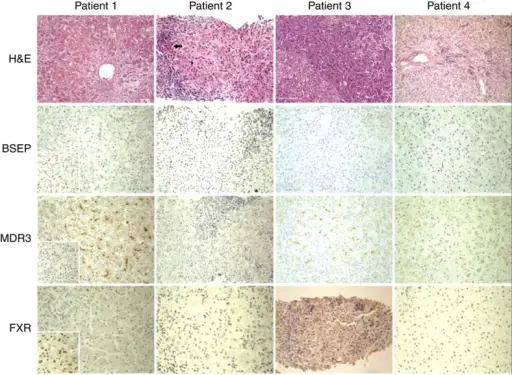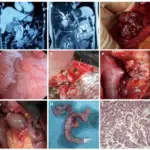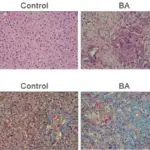Neonatal cholestasis is prolonged jaundice beyond 2 weeks of age.
What is the Pathology of Neonatal Cholestasis?
The pathology of neonatal cholestasis is:
-Etiology: The cause of neonatal cholestasis is intrahepatic neonatal cholestasis.
-Genes involved: None.
-Pathogenesis: The sequence of events that lead to neonatal cholestasis includes elevated conjugated bilirubin levels in the newborn period.
-Histology: The histology associated with neonatal cholestasis shows lobular changes: giant cell transformation (hepatocytes containing 4 – 10 nuclei), variable lobular inflammatory infiltrate and necrosis (spotty, confluent to bridging), canalicular ± hepatocellular bilirubinostasis, extramedullary hematopoiesis.
How does Neonatal Cholestasis Present?
Patients with neonatal cholestasis typically affect newborns. The symptoms, features, and clinical findings associated with neonatal cholestasis include jaundice, cirrhosis, hepatomegaly, ascites, and itching.
How is Neonatal Cholestasis Diagnosed?
Neonatal cholestasis is diagnosed through ultrasonography, and hepatobiliary.
How is Neonatal Cholestasis Treated?
Neonatal cholestasis has no specific treatment, only symptomatic relief is provided
What is the Prognosis of Neonatal Cholestasis?
The prognosis of neonatal cholestasis is fair depending upon the severity of the disease.



